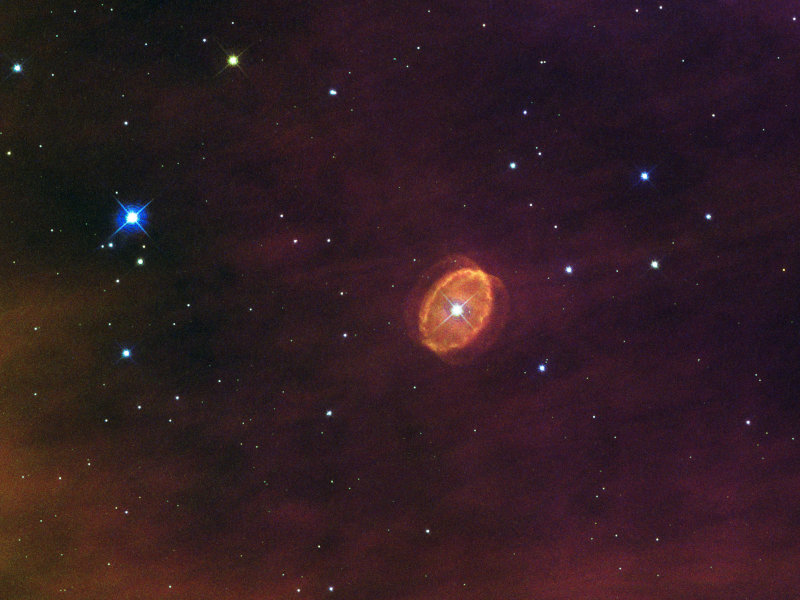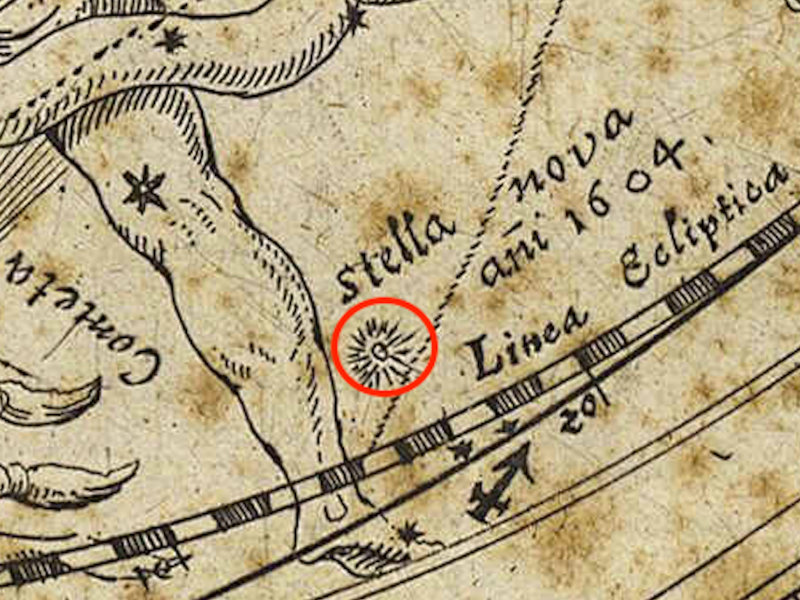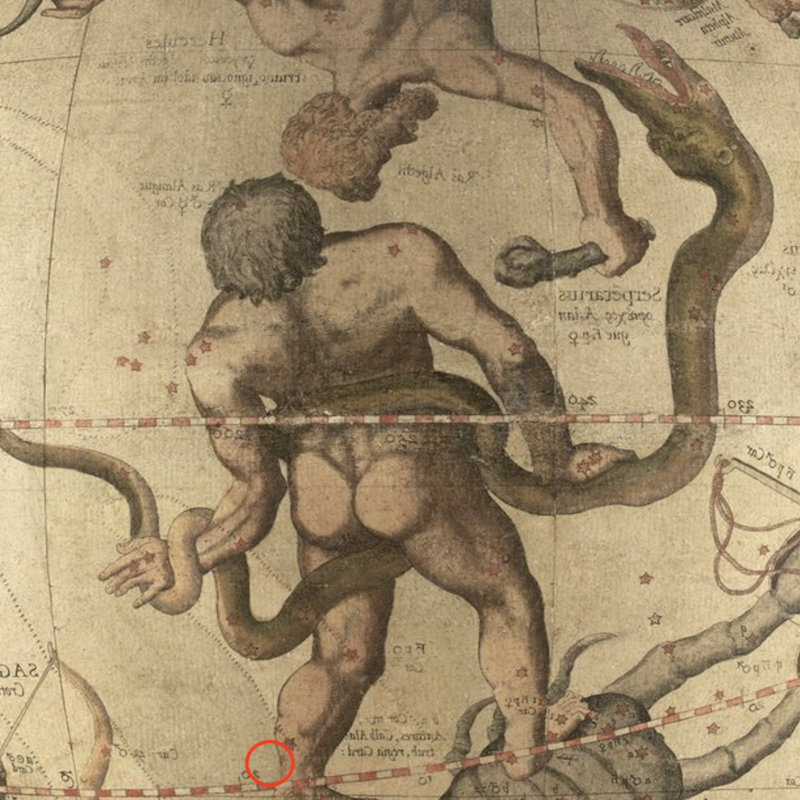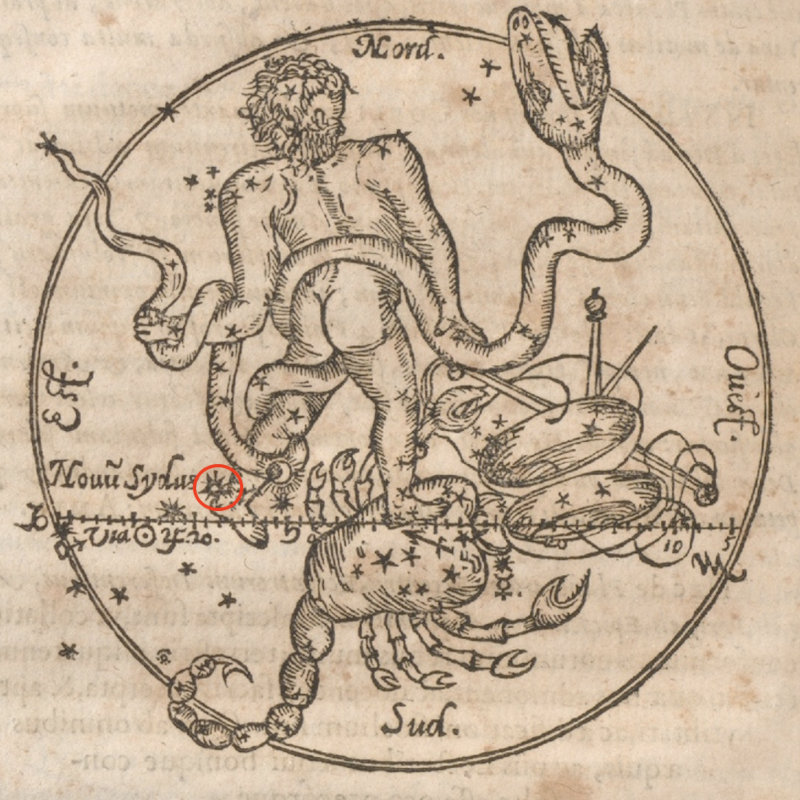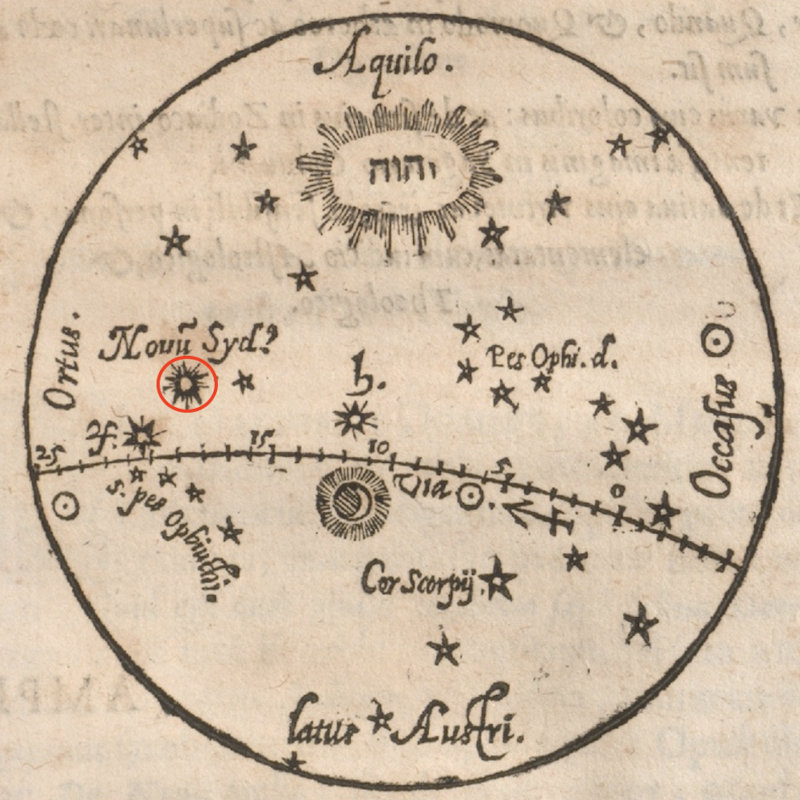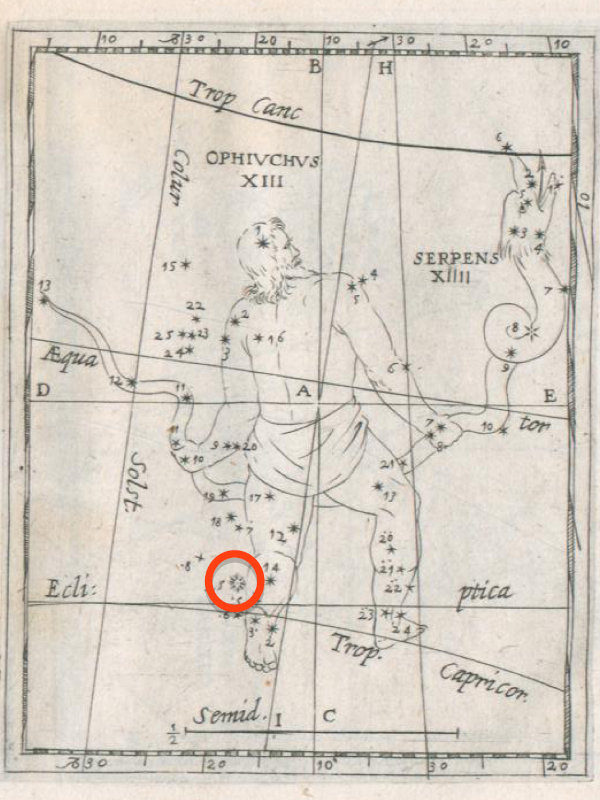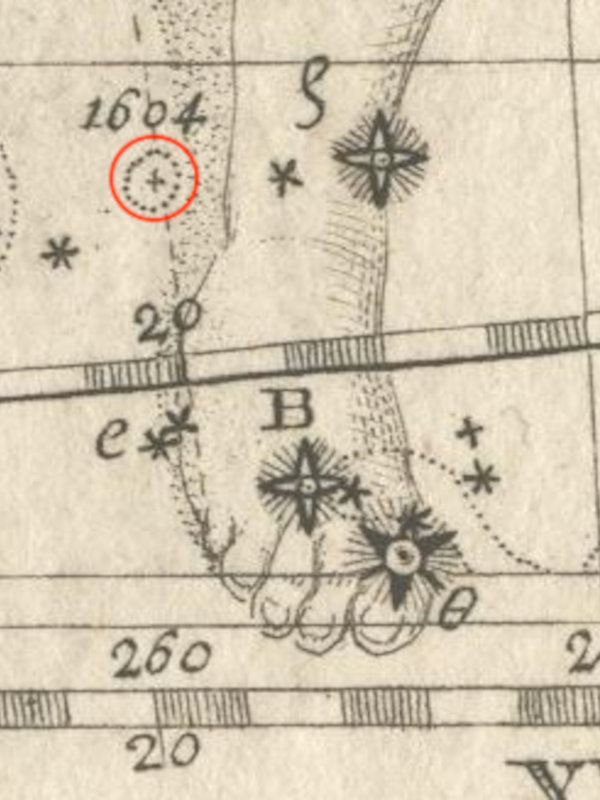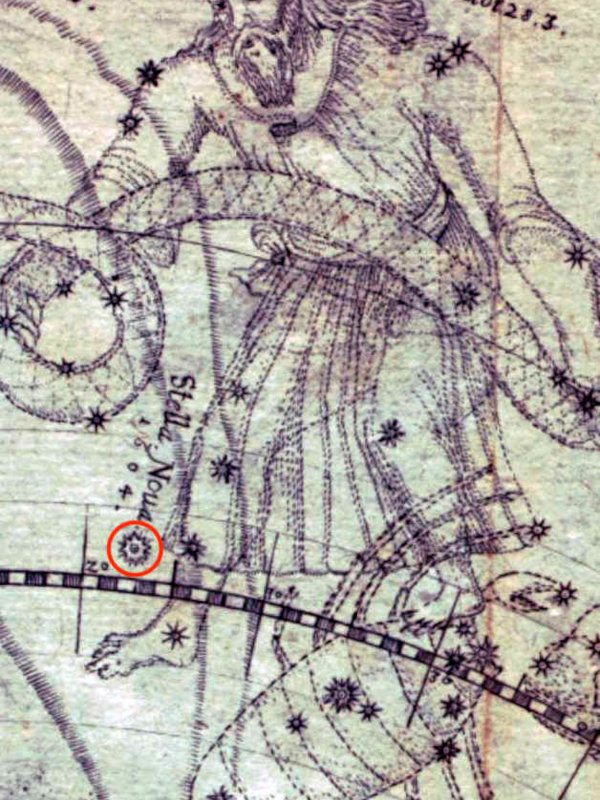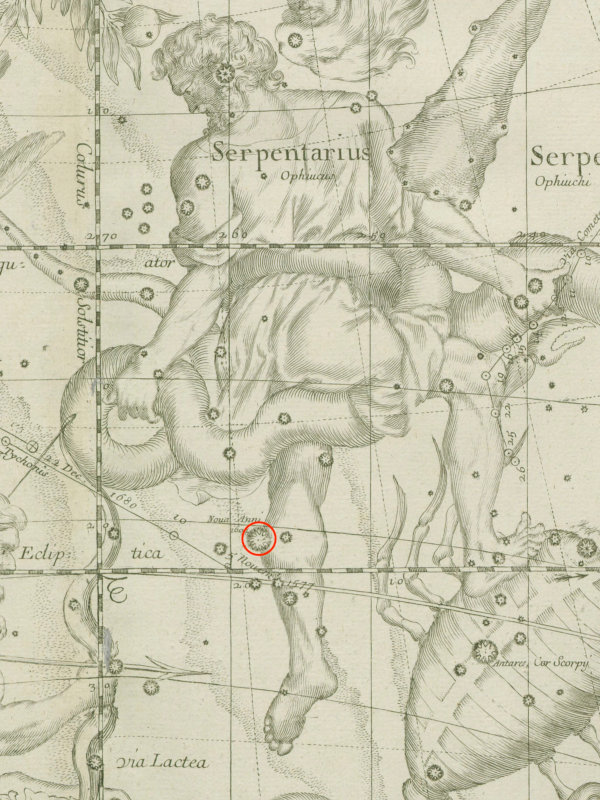News and media
News
- 11/11/2022: Matteo Cosci, "Galileo before the Sidereus Nuncius (1606-1609): Reaccreditation and pseudonymity", Brown Bag Seminar, Department of History of Science, Technology, and Medicine, University of Oklahoma; Norman, Oklahoma (invited).
- 30/09/2022: Matteo Cosci, Introduzione allo spettacolo teatrale "Galileo e il Dialogo di Cecco di Ronchitti", Nuovo allestimento della commedia galileiana sulla stella nova da parte della Compagnia BelTeatro (regia di Bruno Lovadina, consulenza scientifica M. Cosci), Teatro Ca’ Foscari a Santa Marta, Researcher's Night Venezia.
- 15/07/2022: Matteo Cosci, "Galileo's pseudonymous project for his treatise on the 'Stella Nova' of 1604", Department of History of Science, Technology, and Medicine, University of Oklahoma; Norman, Oklahoma.
- 08/07/2022: Matteo Cosci, "Tycho and Tadeáš Hájek's treatise on the 'new star' of 1572", Department of History of Science, Technology, and Medicine, University of Oklahoma; Norman, Oklahoma.
- 29/06/2022: Matteo Cosci, "The Dialexis on the 'new star' by Tadeáš Hájek", Susan Manning Workshop, IASH, University of Edinburgh/ Ca’ Foscari University of Venice, Supernovae, Comets, and Aristotelian Cosmology: a collapse of philosophical paradigms and the birth of the new sciences in the 16th and 17th centuries?, Dipartimento di Filosofia e Beni Culturali, Palazzo Malcanton Marcorà, Ca’Foscari University of Venice.
- postponed: Matteo Cosci, "Galileo alias Alimberto Mauri within the Florentine Dispute on the New Star", International Conference: Galileo before the Sidereus Nuncius, Dipartimento di Filosofia, Università degli Studi di Milano.
- 24/03/2022: Matteo Cosci, "Galileo alias Alimberto Mauri: nuove evidenze documentarie per una nuova edizione delle Considerazioni", Project Workshop, "Teorie e pratiche astrologiche al tempo di Galileo Galilei", with Elide Casali and Monica Azzolini, (Discussant: H. Darell Rutkin), Aula Morelli/Biral, Malcanton Marcorà, Dipartimento di Filosofia e Beni Culturali, Venice Ca' Foscari University.
- 03/02/2022: Matteo Cosci, "Astronomia e astrologia a Padova: dalla convergenza alla divergenza nel corso della rivoluzione scientifica", XXXVIII Corso “Conosci la tua città”, Ctg – Gruppo La Specola: "Il lungo cammino dell'Università di Padova dall'Astrologia alle missioni spaziali", Sala Paladin, Palazzo Moroni, Padova (invited).
- 01/04/2021: Matteo Cosci, " Galileo’s sources for his lectures and studies on the ‘new star’", seminar series ‘Rencontres d’histoire et philosophie des sciences’, online meeting, Dipartimento di Filosofia e Beni Culturali di Ca’ Foscari, AIHS, Centre Jean Pepin
- 10/12/2020: publication of Patrick J. Boner (ed.), Kepler's New Star (1604): Context and Controversy. Leiden - Boston: Brill, 2020.
- 27/11/2019: Matteo Cosci, "Galileo under cover: Pseudonymous Writings on the New Star", ERC Workshop on Early Modern Cosmology (Discussant: David Juste), Dipartimento di Filosofia e Beni Culturali, Università Ca’ Foscari V enezia.
- 15/10/2019: Matteo Cosci, "Historical Documents on Kepler’s Supernova: a Typological Inventory", Historical Supernovae, Novae and Other Transient Events interdisciplinary workshop, Lorentz Centre, Leiden (Netherlands).
- 09/03/2019: Matteo Cosci, "Esalazioni terrestri e vapori atmosferici tra neostoicismo e aristotelismo vernacolare", convegno conclusivo del progetto ERC "I confini dell’aristotelismo vernacolare", Warwick University in Venice, Palazzo Pesaro Papafava.
- 26/02/2019: Matteo Cosci, "On Kepler’s Supernova: a Work in progress and a Research Proposal", seminario interdisciplinare, INAF, Osservatorio Astronomico di Padova presso La Specola, Padova.
- 19/01/2019: Matteo Cosci, "Galileo Galilei, ‘Cecco di Ronchitti’ e la disputa sulla stella nuova", XVII Giornata Galileiana presso l’Accademia Galileiana di Scienze, Lettere ed Arti in Padova.
- 11/01/2019: Matteo Cosci, "Galilei, Keplero e la supernova: una controversia epistemologica", Idee in Bozza: Seminari Filosofici, Università degli Studi di Parma.
- 22/08/2018: Matteo Cosci, "Galileo's account on Kepler's Supernova (SN1604): a Copernican assessement", General Assembly of the International Astronomical Union (Terra-Astronomy Focus Meeting 5: Understanding historical observations to study transient phenomena), Vienna, Austria.
- 11/05/2018: Matteo Cosci, "Il Dialogo di Cecco da Ronchitti between, comedy, satire and astronomical disputatio", International conference "I generi letterari nell'aristotelismo volgare rinascimentale", Università Ca' Foscari, Venezia.
Media
Gallery
Videos
Overview of the SN1604 research project and its supporting Marie-Curie Individual Global fellowship
Overview of Kepler Supernova Remnant from NASA / Chandra X-ray Observatory
Podcast
Presentation of preliminary research results of the project at the international seminar meeting of the online series "Rencontres d'histoire et philosophie des sciences"
Abstract of the audio file
A flow of publications came out after the appearance of the "new star" of 1604. A vivid correspondence network was also reactivated by the astronomers of that time to discuss the conformation, the position and the astrological meaning of the newly observed astronomical phenomenon. While he was teaching a curricular course on the teoriche of planets, Galileo Galilei was appointed for three plenary lectures on the event by the Studio of Padua. Apparently, the text of those lectures never appeared in print, even though they provoked the resentful reactions of many Aristotelian philosophers. Only some fragmentary teaching notes and a later report on those lectures are extant. The name of Galileo, however, was then and now related to some pseudonymous works that appeared on that topic soon after the conferences. In this talk Matteo Cosci argues not only that Galileo was the actual author of a couple of those pseudonymous works, but that even a third one can be newly attributed to the witty genius of the Pisan astronomer. The collation of these and other textual evidence sheds new light on Galileo's understanding of the "stella nova" and his work in observational astronomy before the introduction of the telescope in his late Paduan years.

